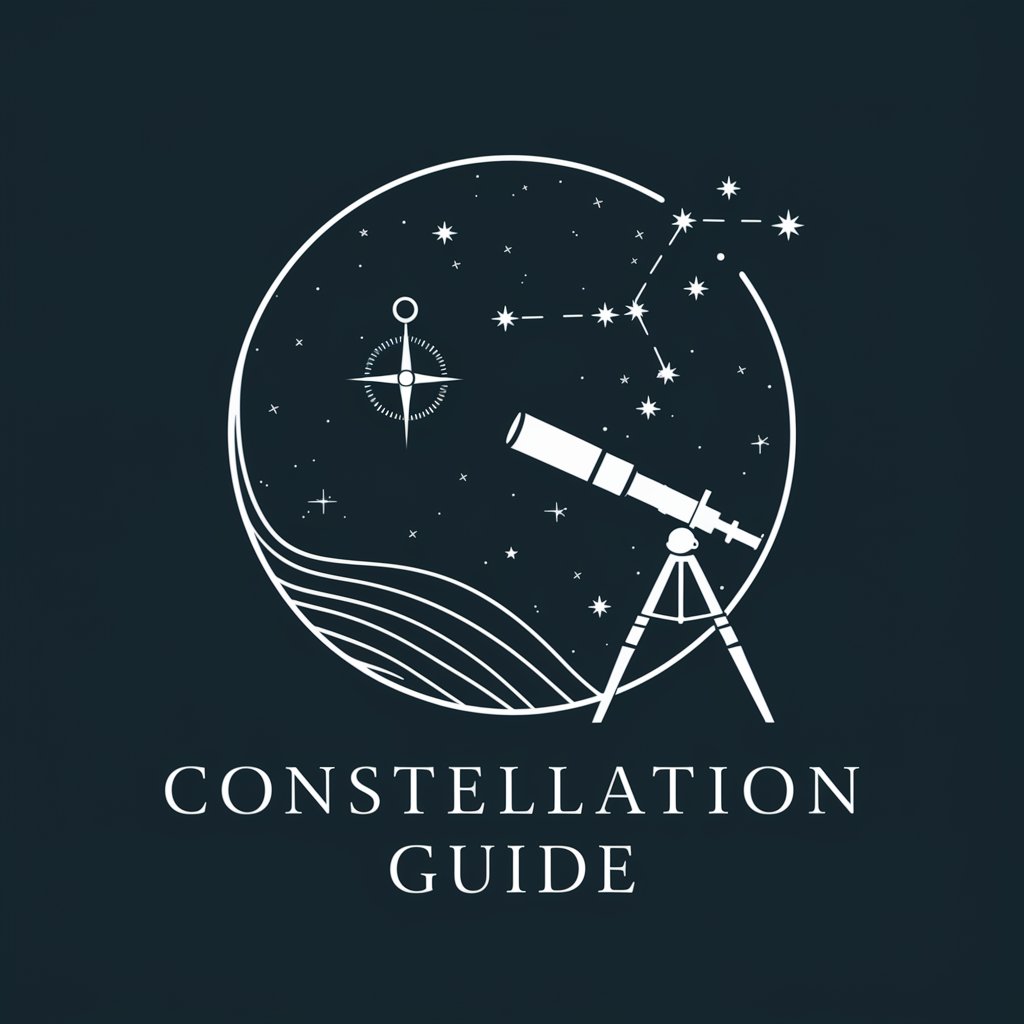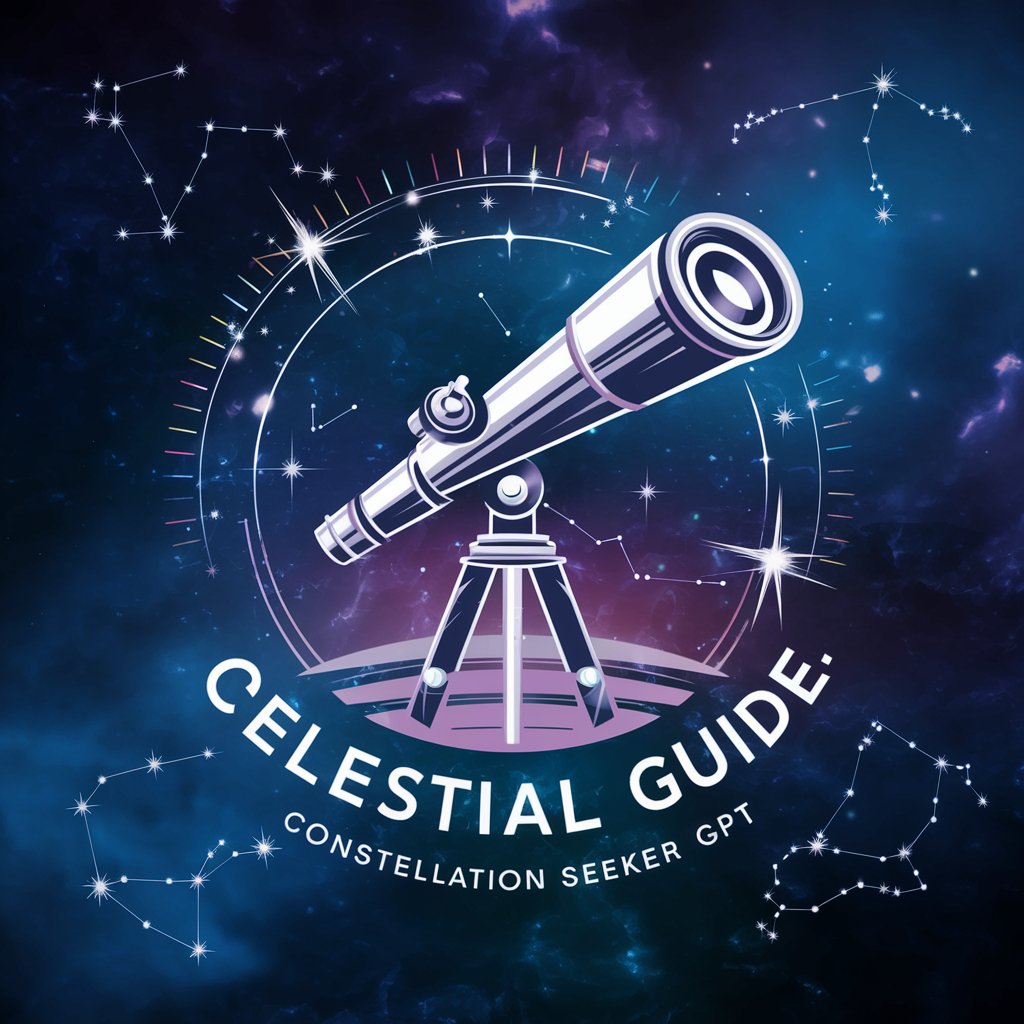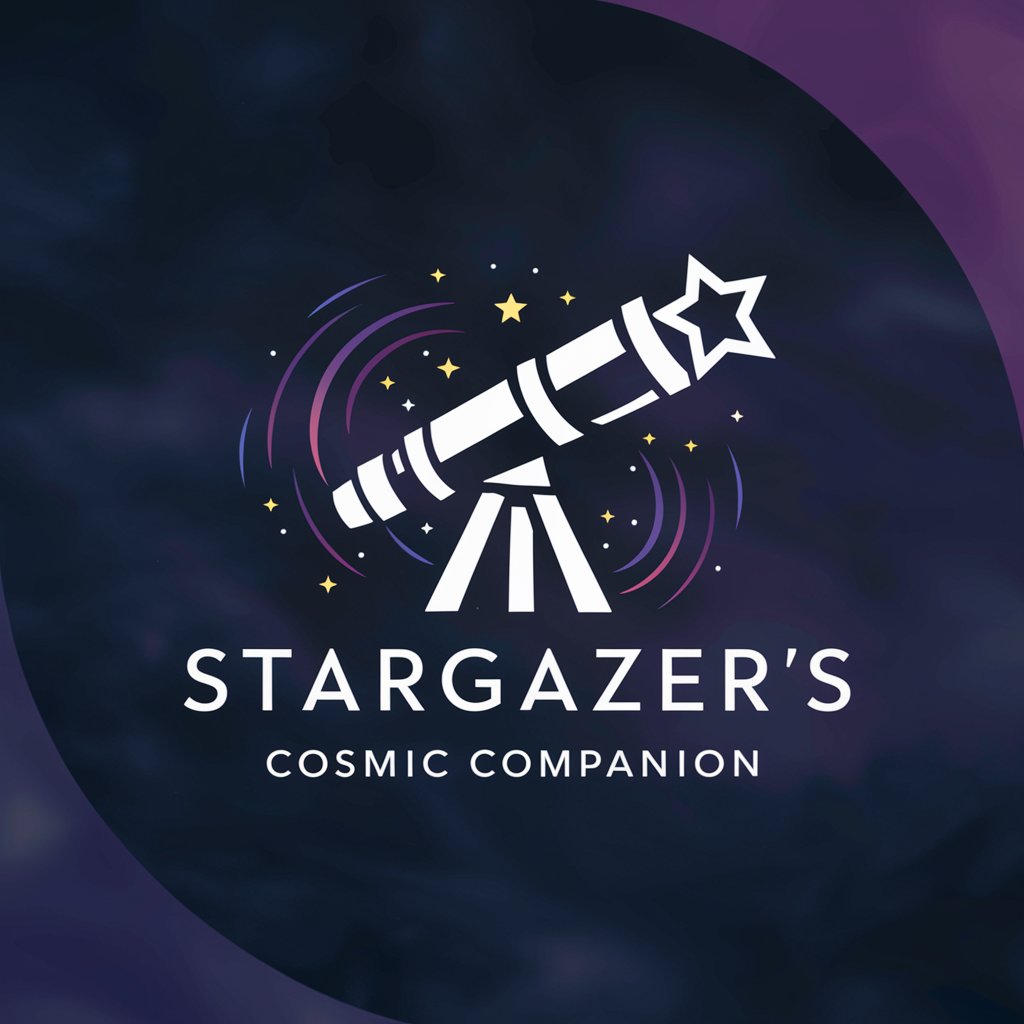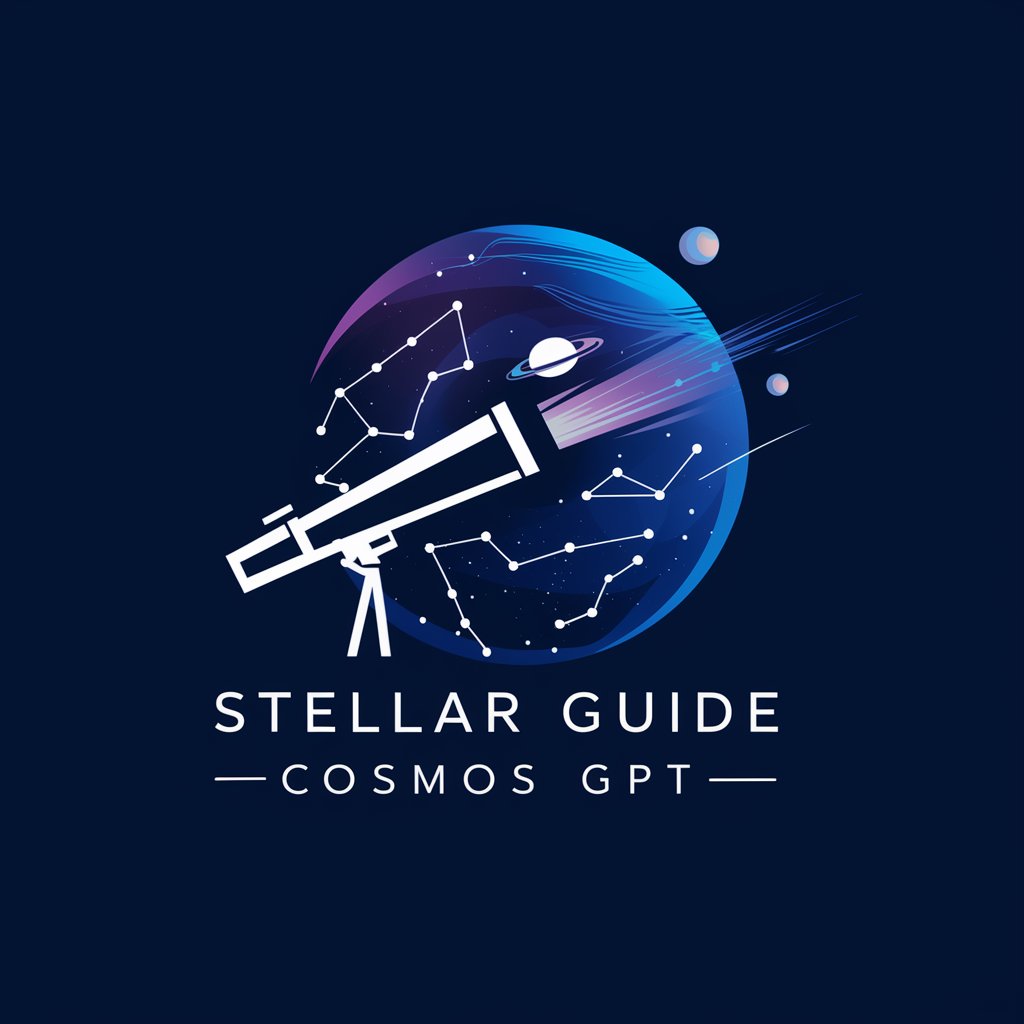
🌃✨ Stargazer's Constellation Guide - Astronomy Exploration Tool
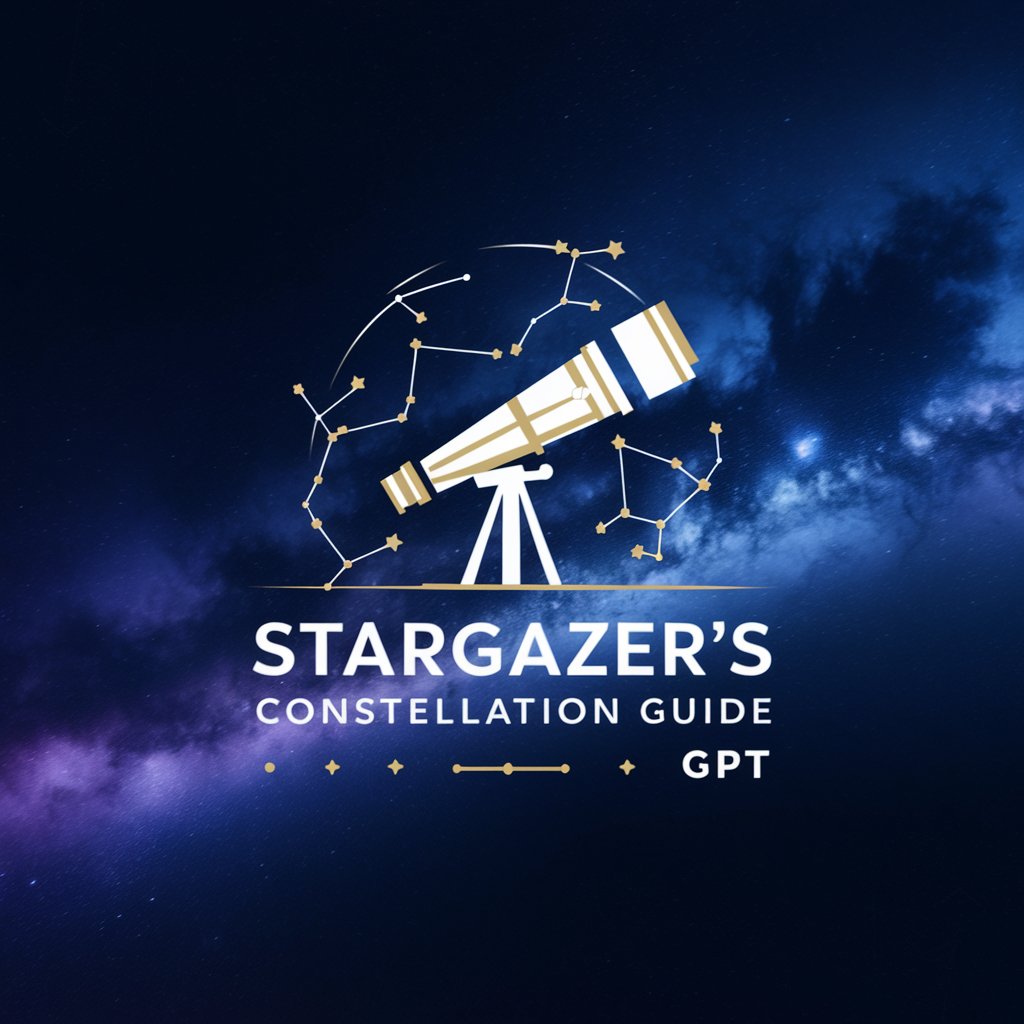
Hello, let's explore the wonders of the night sky together!
Explore the night sky with AI-powered precision.
Can you tell me about the history of the Orion constellation?
What are the best times to observe Jupiter this month?
How do I find the Andromeda Galaxy in the night sky?
Can you generate a star map for my location tonight?
Get Embed Code
Overview of Stargazer's Constellation Guide
Stargazer's Constellation Guide is designed as a dedicated assistant for astronomy enthusiasts of all levels, aiming to enrich their experience of exploring the night sky. Its core purpose is to facilitate the identification of stars, constellations, planets, and other celestial objects, providing a wealth of information including scientific facts, history, and mythology. This GPT can generate star maps and images of constellations tailored to the user's location and the current sky conditions, offering an interactive guide to the cosmos. It also advises on the best times for stargazing, forecasts space weather, and keeps users informed about upcoming astronomical events. By leveraging up-to-date web browsing capabilities, it ensures users have access to the latest educational resources and scientific data, making it an invaluable tool for anyone looking to deepen their understanding of astronomy. Powered by ChatGPT-4o。

Key Functions and Real-World Applications
Identification and Information on Celestial Objects
Example
Identifying Jupiter and its moons through a telescope.
Scenario
A user aims their telescope at a bright object in the night sky. Using Stargazer's Constellation Guide, they confirm the object is Jupiter and receive information on its moons, viewing times, and historical significance.
Generating Custom Star Maps
Example
Creating a star map for a specific location and date.
Scenario
A user planning a stargazing night on their camping trip inputs their remote location and the trip date. The guide generates a detailed star map, highlighting visible constellations and celestial events to watch for.
Astronomical Event Updates and Stargazing Advice
Example
Notification of the Perseid meteor shower.
Scenario
The guide alerts users about the peak of the Perseid meteor shower, offering tips on the best viewing times and locations, and how to prepare for a night of meteor watching.
Space Weather Forecasts
Example
Predicting solar flares and their visibility.
Scenario
Before planning an observation session, a user consults the guide to check for any solar activity. The guide provides forecasts of solar flares and advises on their potential impact on Earth's sky, including auroras.
Target User Groups
Astronomy Enthusiasts
Individuals with a passion for the night sky, from beginners seeking to learn more about stars and planets, to experienced amateurs looking for detailed celestial information and event updates.
Educators and Students
Teachers using the night sky as an educational resource, and students of all ages interested in astronomy. The guide offers an interactive learning tool to complement academic studies.
Astrophotographers
Photographers specializing in capturing celestial events and landscapes who require precise information on celestial positioning, lighting conditions, and space weather forecasts.

How to Use 🌃✨ Stargazer's Constellation Guide
1
Start without a signup at yeschat.ai, offering a free trial with no requirement for ChatGPT Plus.
2
Select the 'Stargazer's Constellation Guide' from the available GPT options to initiate your astronomy exploration.
3
Input your location details to receive personalized star maps and constellation visuals tailored to your current sky conditions.
4
Ask specific questions about stars, constellations, planets, or upcoming astronomical events for in-depth explanations and stargazing tips.
5
Use the tool to plan your stargazing sessions, leveraging updates on space weather and optimal viewing times for celestial events.
Try other advanced and practical GPTs
🐠 OceanID Expert Assistant 🦈
Dive into Marine Intelligence

🔍✨ Find-It-Now Wizard 🗝️🛒
AI-powered organizational wizardry at your fingertips.

🐞 BugScope: Insect ID Expert 🦋
Discover Insects with AI

🍲📅 Chill Chef Meal Planner
AI-powered, personalized meal planning made easy.

🌿 AI Plant Pathologist Helper 🏥
Empowering Plant Health with AI

✨ Chic Attire Coordinator 🎀
Elevate Your Ensemble with AI-Powered Accessory Matching

🪨 GeoRock ID Wizard 🌍
Unlock the secrets of rocks with AI
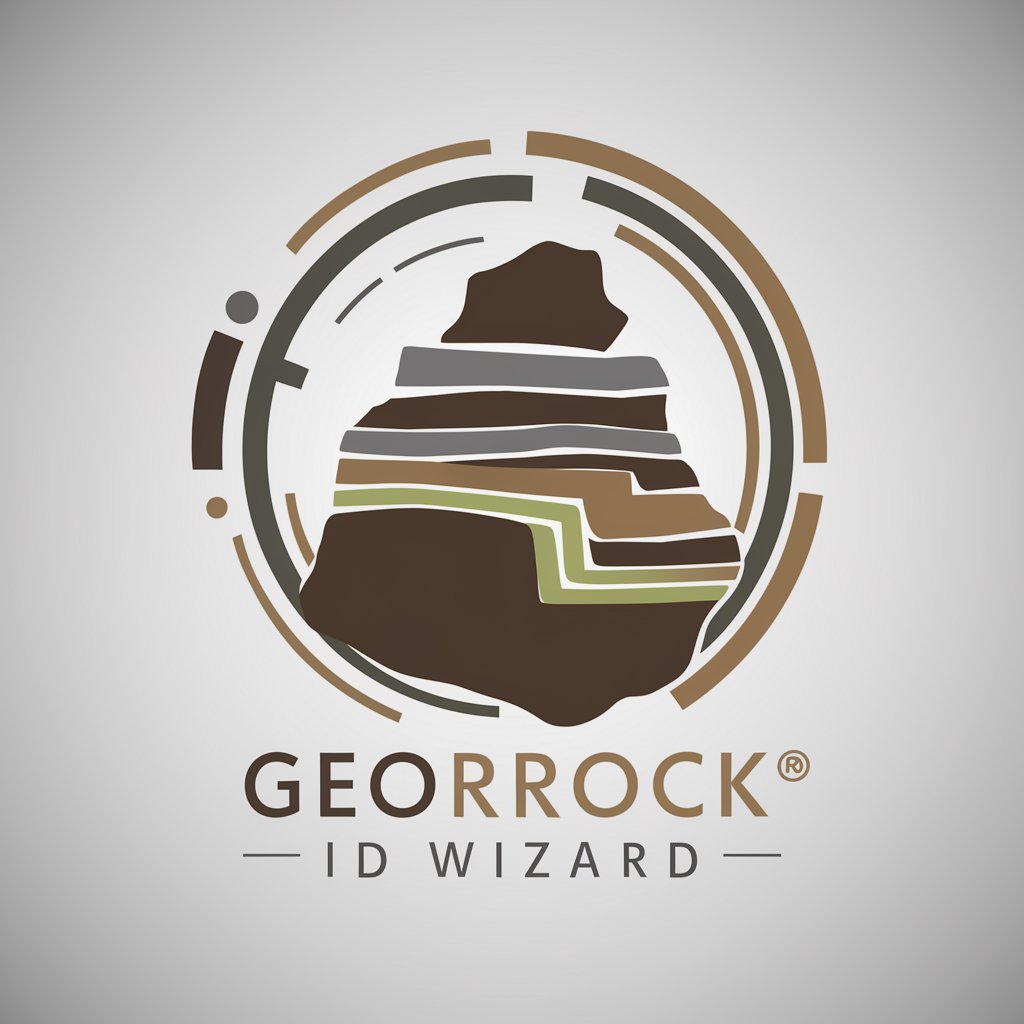
🐦 Avian Expert Identifier 🦜
AI-Powered Bird Identification at Your Fingertips

✍️ Penmanship Personality Prober 🕵️
Unlock personalities with AI-driven handwriting analysis

🔍🤖 DermAssist Bot Pro 🩺💡
Empowering skin health with AI insights

🦊 Urban Wildlife Spotter GPT 🐿️
Discover Urban Wildlife Intelligently

🎨✨ Chic Space Styler Expert 🏡✨
Revolutionize your space with AI-powered design.

Frequently Asked Questions about 🌃✨ Stargazer's Constellation Guide
How can I find constellations using this guide?
Provide your current location and the date you plan to stargaze. The guide will generate a star map highlighting visible constellations and offer guidance on how to locate them in the night sky.
What information does the guide provide about planets?
It offers detailed profiles on planets, including their visibility, position in the solar system, historical significance, and observation tips for the best viewing experiences.
Can I receive updates on astronomical events?
Yes, you can request updates on upcoming celestial events such as meteor showers, eclipses, and planetary alignments. The guide will advise on when and where to observe these phenomena.
Is this tool suitable for educational purposes?
Absolutely. It's designed to support both individual learning and classroom environments by providing accurate, scientific information on astronomy, making it a valuable resource for students and educators alike.
How does this guide help with stargazing planning?
By inputting your location and desired viewing times, the guide can forecast the best stargazing conditions, suggest celestial objects of interest, and provide visibility forecasts to optimize your experience.
